Prem S. Sudhish
Infant-ID: Fingerprints for Global Good
Oct 07, 2020
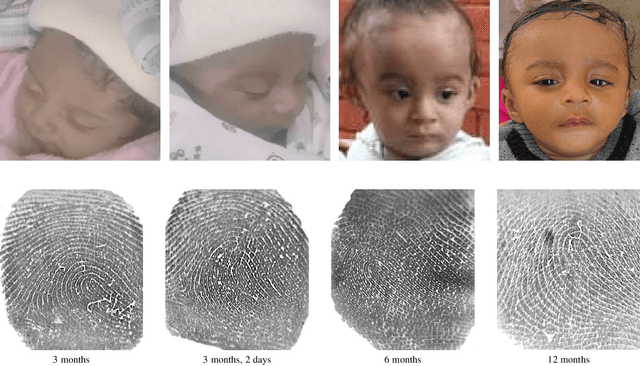
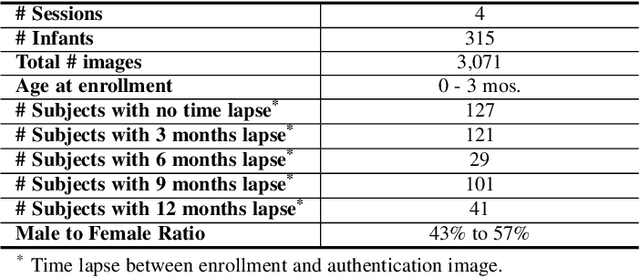

Abstract:In many of the least developed and developing countries, a multitude of infants continue to suffer and die from vaccine-preventable diseases and malnutrition. Lamentably, the lack of official identification documentation makes it exceedingly difficult to track which infants have been vaccinated and which infants have received nutritional supplements. Answering these questions could prevent this infant suffering and premature death around the world. To that end, we propose Infant-Prints, an end-to-end, low-cost, infant fingerprint recognition system. Infant-Prints is comprised of our (i) custom built, compact, low-cost (85 USD), high-resolution (1,900 ppi), ergonomic fingerprint reader, and (ii) high-resolution infant fingerprint matcher. To evaluate the efficacy of Infant-Prints, we collected a longitudinal infant fingerprint database captured in 4 different sessions over a 12-month time span (December 2018 to January 2020), from 315 infants at the Saran Ashram Hospital, a charitable hospital in Dayalbagh, Agra, India. Our experimental results demonstrate, for the first time, that Infant-Prints can deliver accurate and reliable recognition (over time) of infants enrolled between the ages of 2-3 months, in time for effective delivery of vaccinations, healthcare, and nutritional supplements (TAR=95.2% @ FAR = 1.0% for infants aged 8-16 weeks at enrollment and authenticated 3 months later).
Infant-Prints: Fingerprints for Reducing Infant Mortality
Apr 01, 2019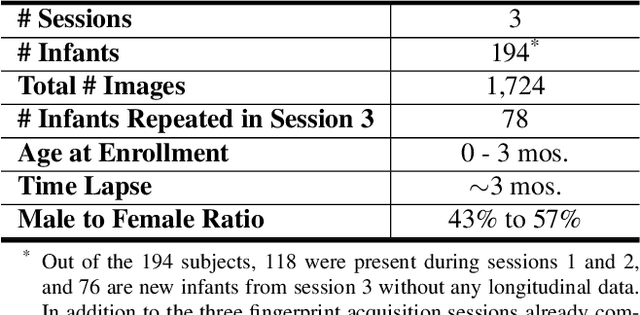
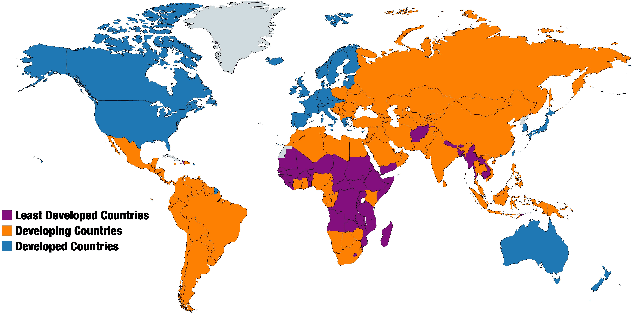

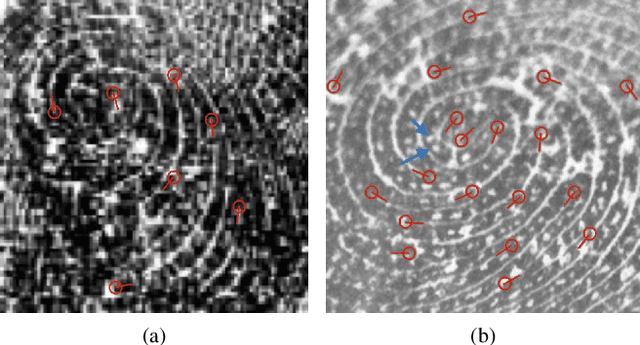
Abstract:In developing countries around the world, a multitude of infants continue to suffer and die from vaccine-preventable diseases, and malnutrition. Lamentably, the lack of any official identification documentation makes it exceedingly difficult to prevent these infant deaths. To solve this global crisis, we propose Infant-Prints which is comprised of (i) a custom, compact, low-cost (85 USD), high-resolution (1,900 ppi) fingerprint reader, (ii) a high-resolution fingerprint matcher, and (iii) a mobile application for search and verification for the infant fingerprint. Using Infant-Prints, we have collected a longitudinal database of infant fingerprints and demonstrate its ability to perform accurate and reliable recognition of infants enrolled at the ages 0-3 months, in time for effective delivery of critical vaccinations and nutritional supplements (TAR=90% @ FAR = 0.1% for infants older than 8 weeks).
 Add to Chrome
Add to Chrome Add to Firefox
Add to Firefox Add to Edge
Add to Edge